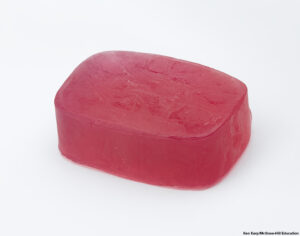
TIME has named Hemen Bekele TIME’s Kid of the Year for 2024 for inventing a skin-cancer fighting bar of soap. Bekele is a 10th grader from Fairfax, Virginia.
Bekele’s passion for skin cancer research traces back to his early years in Addis Ababa, Ethiopia, before his family moved to the United States. In Ethiopia, Bekele recalls seeing workers outside in intense sun with little or no protection for their skin. As he learned more about how widespread skin cancer is, Bekele felt a desire to do something.
Skin cancer is the most common cancer in the United States. Treatment costs an average of $40,000. The high cost of skin cancer treatments inspired Bekele to find a more affordable option. Bekele realized that everyone uses soap and water for cleaning, so that was where he began his experimentation. After much work, he developed a bar of soap he calls MTS, Melanoma Treating Soap. At a cost of $0.50 cents per bar, or $10 for a pack of 20 bars, it is affordable and can last months.

Bekele has been experimenting with safe, non-toxic household mixtures since he was about 4 years old. As a teen, Bekele’s experiments became more advanced. He started researching imiquimod, a drug approved to fight skin cancer. Imiquimod is typically used as a cream. To prevent the drug from washing away with the soap suds, Bekele combined it with another substance. This kept the imiquimod on the skin when the soap washed away. He tested his product using a digital computer-based model. The results showed very high numbers for the efficiency of the soap.
In October 2023, Bekele’s work was recognized. He won 3M’s Young Scientist Challenge and the $25,000 prize. In addition, Bekele was paired with a 3M mentor Deborah Isabelle to continue his research and development. His win motivated him to continue working hard because he realized his ideas were being heard.
At an event sponsored by the Melanoma (a type of skin cancer) Research Alliance, Bekele was introduced to another mentor. Vito Rebecca. He is a molecular biologist and assistant professor at Johns Hopkins in Baltimore, Maryland. Rebecca saw Bekele’s passion and invited Bekele to work at his laboratory in Baltimore. There these two scientists have been testing Bekele’s compound in mice.
Bekele doesn’t spend all his time in the lab though. He plays both flute and trombone in his high school’s marching band. He is also an avid reader, especially of fantasy books. He plays basketball and says chess is his way to “turn his brain off.”
Herman Bekele’s passion is to provide accessible skin cancer treatment to as many people as possible. He hopes to establish a nonprofit organization in the next few years to expand his reach. His 5-year plan includes getting FDA certification in order to conduct human tests for his soap. Bekele wants to find a sustainable solution to this problem and others. To this end, he also has made the packaging for his soap biodegradable.
2024 Kid of the Year Honorees
Each year since 2020, TIME and TIME for Kids recognize young leaders, ages 8-16, who are making a positive impact in their communities. For 2024, the five honorees include: Dom Pecora, Madhvi Chittoor, Jordan Sucato, Keivonn Woodard, and Shanya Gill. Pecora created a business that donates bicycles to people in need. Chittoor is an environmental activist. Sucato raises money to help homeless animals and supports legislature to prevent cosmetic testing on animals. Keivonn Woodard is a deaf actor whose success is promoting the authentic hiring of actors with disabilities. Gill invented an app-based fire detection system.
